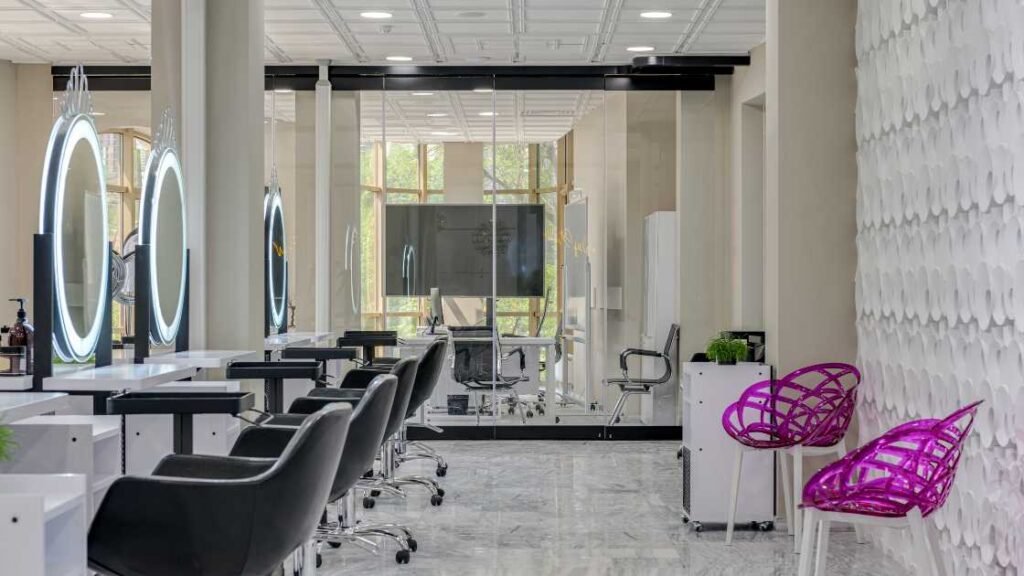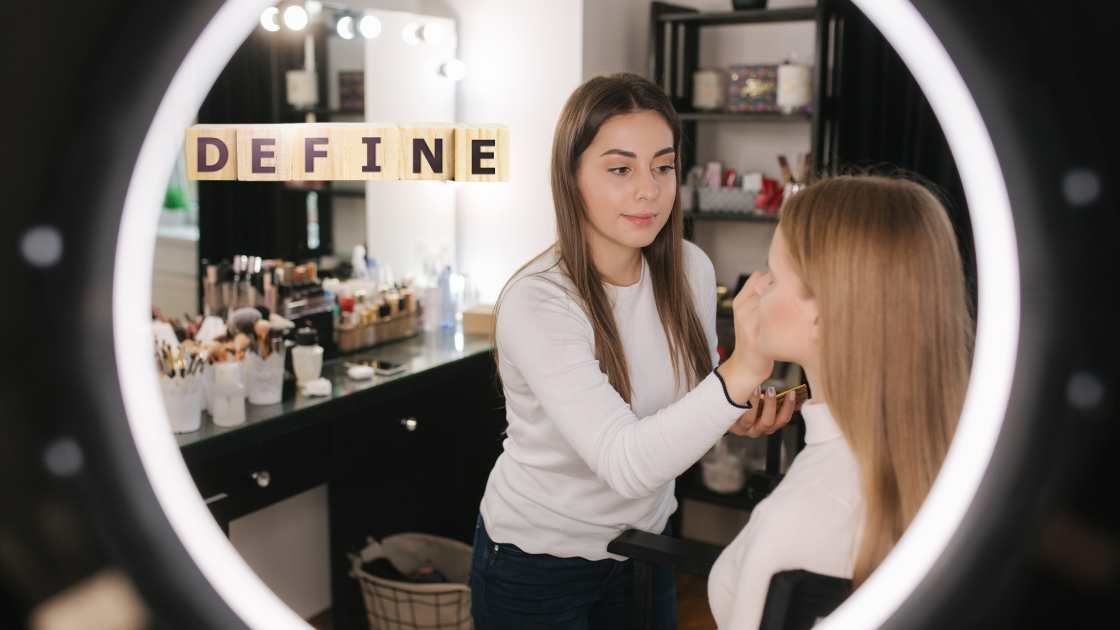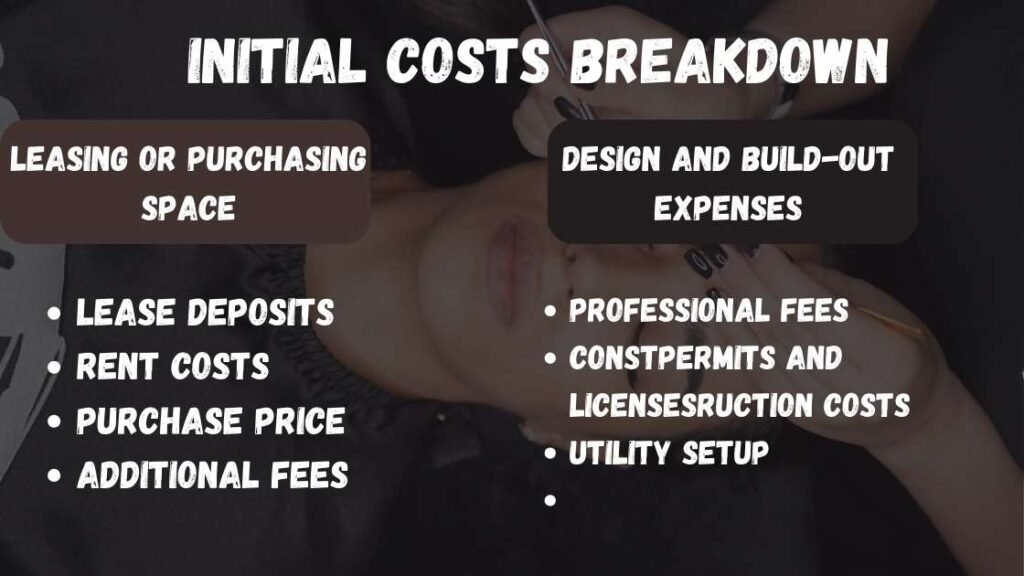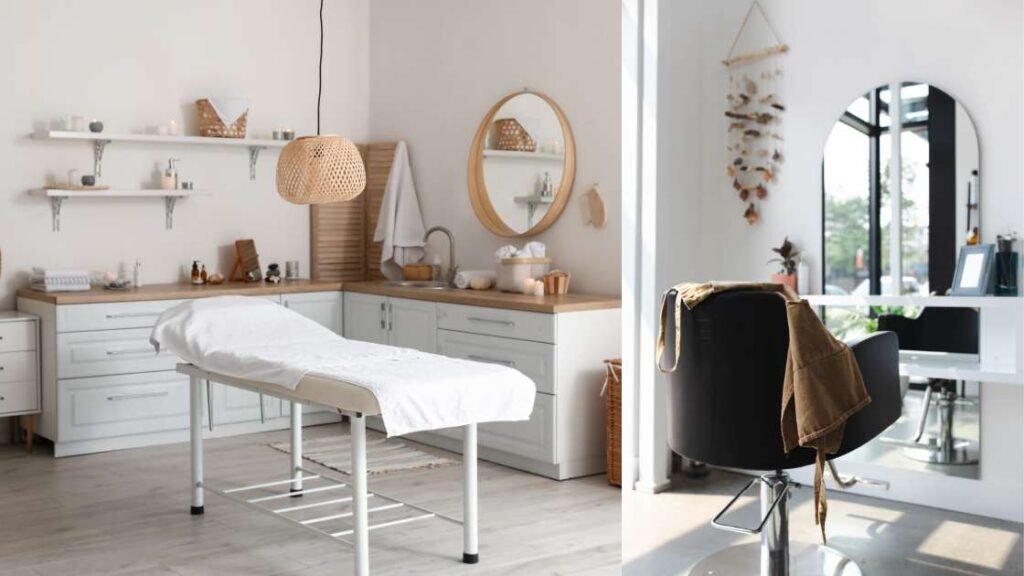In the U.S., the cost to open a salon suite varies widely—from tens of thousands of dollars for a single independent suite build-out to roughly $1.18–$1.94 million+ for a franchised multi-suite facility. Factors like location, size, and fit-out quality significantly affect the final price.
Starting on the journey of opening a salon suite involves careful consideration of many costs and investments. Beauty professionals aspiring to establish their salon suites should meticulously assess the financial aspects, including location expenses, premium salon equipment, and customized interiors.
Therefore, addressing the question, “How much does it cost to open a salon suite?” entails a comprehensive evaluation of these key elements to ensure a successful and aesthetically pleasing business venture.

As these elements converge, they can escalate the initial investment required to establish a stylish, competitive salon suite. Entrepreneurs must meticulously plan their budget, considering rent, licenses, insurance, and marketing expenses. With the beauty industry’s continuous growth, a well-positioned salon suite can become a lucrative business, appealing to a clientele that values personalized service in an exclusive setting.
The Salon Suite Concept
Launching a salon suite venture offers a unique blend of entrepreneurship and artistry in the beauty industry. Salon suites are revolutionizing traditional salon settings by providing personal, customizable spaces for beauty professionals. Let’s investigate what defines a salon suite and Investigate its benefits to stylists and clients alike.
Defining A Salon Suite

Salon suites are private, individual spaces within a larger facility. Setup with the necessary infrastructure, each suite acts as an independent mini-salon. Entrepreneurs rent these spaces to offer personalized beauty services. This model blends privacy, customization, and independence under a single roof.
- Rental Costs: They vary by location and size.
- Lease Flexibility: Options range from month-to-month to yearly contracts.
- Equipment Included: Basic furnishings are often provided.
Advantages For Beauty Professionals
Beauty experts choose salon suites for a multitude of reasons. This model promotes a tailored experience for both the stylist and clientele. Here’s a quick rundown of the perks:
- Autonomy: Control your services, products, and pricing.
- Customization: Decorate your suite to mirror your unique style.
- Personal Attention: Offer clients dedicated one-on-one time.
- Reduced Overhead: Share utility and amenity costs across the facility.
Note: Costs and options can change. Always check the latest details before making a decision.
Initial Costs Breakdown

Stepping into the world of beauty and style, opening a salon suite is an exciting venture. It is essential to understand the initial costs. This breakdown will guide future salon owners through the financial planning needed to bring their dream salon to life.
Leasing Or Purchasing Space
Selecting the perfect location is essential for any salon suite. Costs vary widely based on location and square footage. Here is a brief overview:
- Lease deposits: Often required for renting, sometimes equal to one or two months’ rent.
- Rent costs: Monthly expenditure dependent on size and location.
- Purchase price: Upfront cost if buying, influenced by local property values.
- Additional fees: Property taxes or maintenance fees if owning are important to consider.
Design And Build-out Expenses
Creating an inviting and functional space is essential. Initial design investments should reflect the salon’s brand. Expected expenses may include:
- Professional fees: Payment for architects or interior designers.
- Construction costs: Can range vastly for renovations or new builds.
- Permits and licenses: Legal requirements often come with fees.
- Utility setup: Water, electricity, and internet installations are key.
Furniture And Equipment Investments
Quality furniture and professional equipment are staples in any salon. Plan for these essential investments:
| Item | Cost Estimate |
|---|---|
| Styling chairs | Variable depending on quality. |
| Shampoo stations | Includes plumbing costs. |
| Mirrors and stations | Reflects the salon’s aesthetic. |
| Salon-specific tools | Scissors, dryers, and more. |
Additional essentials might comprise reception desks, waiting area furniture, and retail display units.
Operating Expenses
Opening a salon suite is an exciting venture. Yet, the journey from dream to reality involves the costs. Operating expenses make up a big piece of your budget puzzle. Smart budgeting helps you keep your salon suite profitable. Let’s break down the key operating costs you need to consider.
Utilities And Maintenance Fees
Keeping the lights on and water running is vital in a salon suite. Here’s what to expect:
- Electricity: Essential for lighting and styling tools.
- Water: A core element for many salon services.
- Heating and Cooling: Comfort for you and your clients.
Maintenance keeps your suite in top shape. Regular cleaning and repairs prevent bigger costs later.
Staffing And Employment Costs
The right team can make your salon suite shine. Costs to consider include:
| Staffing Need | Related Cost |
|---|---|
| Salon Professionals | Wages or rental fees |
| Receptionist | Hourly pay |
| Cleaners | Service charge |
Remember to factor in benefits and taxes for a clear financial picture.
Insurance And Licensing

Insurance protects your business from the unexpected. You’ll need:
- Liability insurance
- Property insurance
- Workers’ compensation (if you have employees)
Licensing can have initial and renewal costs. Stay compliant to avoid fines. Here are key licenses:
- Salon business license
- Cosmetology licenses
- Health and safety permits
Keep licenses and insurance up-to-date. They’re vital for a successful salon. (Requirements vary by U.S. state.)
Marketing Your Salon Suite

Opening a salon suite comes with exciting prospects. Success involves reaching the right audience. Effective marketing strategies set the groundwork for a bustling salon business. Discover how to attract customers through branding and promotion without breaking the bank.
Branding And Online Presence
Your salon’s brand is its identity. It makes a memorable impression. Crafting a unique brand image and building a strong online presence are essential steps. Let’s look at how to achieve this:
- Choose a catchy name that reflects your salon’s vibe.
- Develop a logo that stands out.
- Create a professional website that showcases your services.
- Set up social media profiles on platforms like Instagram and Facebook.
- Use high-quality images to present your work.
- Invest in SEO strategies to help clients find you online.
Advertising And Promotional Strategies
Once your brand is in place, draw clients in with smart advertising. Keep promotions within budget and effective. Here’s how:
| Strategy | Benefits | Estimated Cost |
|---|---|---|
| Local Flyers | Reach nearby clients | Low |
| Social Media Ads | Target specific demographics | Flexible |
| Referral Discounts | Word-of-mouth marketing | Varies |
| Email Campaigns | Keep clients informed | Low to Moderate |
Combining digital and traditional methods covers a wider audience. Use data tracking to understand which strategies work best. Adjust your approach accordingly. Special promotions can help entice new customers. Remember, quality service encourages repeat visits and referrals!
Additional Financial Considerations

Opening a salon suite involves more than rent and decor expenses. It’s vital to grasp the full financial picture. Below, Investigate the key additional costs you’ll encounter on your journey to launching your dream salon suite.
Inventory And Product Costs
Sourcing quality products is essential. Aim to balance cost with client expectations. Your initial inventory will likely include:
- Hair care: shampoo, conditioner, styling products
- Nail supplies: polishes, removers, tools
- Skin products: cleansers, moisturizers, masks
- Tools: scissors, dryers, straighteners
Consider buying in bulk for better rates. Also, negotiate with suppliers for discounts.
Technology And Software Tools

Modern salons need tech tools. These help with booking, sales, and client management. You’ll need:
| Tool | Use | Estimated Cost |
|---|---|---|
| POS System | Transactions | $500-$1500 |
| Scheduling Software | Appointments | $20-$100/month |
| Inventory Management | Stock Tracking | $50-$200/month |
Select tools that scale with your business and fit your budget.
Unexpected Costs And Budgeting
Surprises happen. You might face:
- Emergency repairs
- Permit fees
- Insurance premiums
Create a cushion in your budget. Aim for a reserve fund of at least 10-15% of your initial budget. This will protect your salon from unforeseen setbacks.
Profitability And Break-even Analysis
The profitability and break-even analysis of opening a salon suite is essential. Knowing when your new business will start making a profit helps plan better. Let’s Sink into how to protect your income and determine when you’ll break even.
Estimating Revenue Streams
To predict your salon’s potential earnings, consider these key factors:
- Service prices – What you’ll charge for each service.
- Frequent clients – The regulars who visit your salon often.
- Retail sales – Products you sell alongside services.
| Service | Price | Average Monthly Clients | Monthly Revenue |
|---|---|---|---|
| Hairstyling | $50 | 100 | $5000 |
| Nail care | $30 | 50 | $1500 |
A detailed forecast of these streams forms a clear picture of potential earnings.
Calculating Break-even Points
The break-even point is when total revenue equals total costs.
To calculate, list all startup and operating expenses first. Divide total costs by average service price. This gives the number of services needed to break even.
Here is a simple formula:
Break-Even Point = Total Fixed Costs / (Average Service Price - Variable Costs per Service)
Long-term Financial Planning
For sustainability, consider these long-term aspects:
- Growth projection – Estimate how revenue will increase over time.
- Reinvestment – Put profits back into the business for expansion.
- Emergency funds – Save for unexpected expenses.
Solid financial planning ensures your salon suite thrives for years.
Frequently Asked Questions For How Much Does It Cost To Open A Salon Suite
Are Salon Suites A Good Investment?
Salon suites can be a lucrative investment due to the high demand for personalized beauty services and the opportunity for steady rental income from beauty professionals.
How To Start Up A Salon Suite Business?
Research local regulations and secure necessary licenses. Draft a comprehensive business plan. Choose a desirable location and design your suite. Purchase required equipment and supplies. Market your salon suite effectively to attract clientele.
What’s The Average Size Of A Salon Suite?
The average size of a salon suite typically ranges from 100 to 300+ square feet (varies by operator). This space typically includes a styling station, sink, and storage areas.
How Much Money Do You Need To Invest In A Salon?
Starting a salon typically requires an investment ranging from $62,000 to $500,000. Factors include location, size, and services offered. Financing options may reduce initial outlay.
Conclusion
Launching on the journey to open a salon suite is an exciting endeavor. The cost varies, is influenced by location, services offered, and design choices. Crafting your dream salon requires a blend of financial planning and personal flair. As each entrepreneur’s vision differs, so will the investment needed.
Remember to budget wisely and let creativity steer your venture to success.



2 thoughts on “How Much Does It Cost to Open a Salon Suite?”
Pingback: How Much Does A Perm Cost? A Comprehensive Guide
Pingback: How Much Does A 200 Person Wedding Cost?